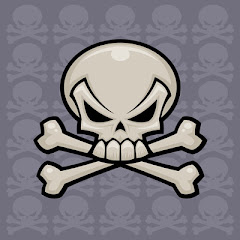Discussion has been ongoing on the topic. Many big and important companies have to do with it. It even involves the U.S. It is the WikiLeaks incident. Once Private First Class Bradley Manning downloaded tens of thousands of cables to a CD-RW disc at the Iraq U.S. Army outpost, he immediately broke 18 U.S. laws which criminalises unauthorised computer downloads. He then allegedly sent all these files to the self-described freedom-of-information activist Julian Assange and his revolutionary website, WikiLeaks. But these were not just any cables. They were secret U.S. files that contained 76,607 U.S. military files on the Afghanistan war effort and close to 400,000 war logs from Iraq. Both of these files contained unreported civilian deaths and many incidences of abuse. To make matters worse, a batch of U.S. State Department cables that exposed diplomatic cables of all sorts were released, and WikiLeaks claims the number of these files released will eventually number to 251,287. Out of these, 11,000 documents were marked secret, and the release of just one of them, as classified by the government's definition, would cause serious damage to national security. Following the U.S. government's call, many companies have stopped serving WikiLeaks- the Bank of America, MasterCard, PayPal and Visa Europe has closed down the accounts that provided funds for WikiLeaks, and Amazon.com has removed WikiLeaks from its server. However, many hackers, also known sometimes as hacktivists, in support of WikiLeaks and Julian Assange, have gone as far as hacking some of these companies' websites and shutting them down. However, the Bank of America is confident about its website's security. Security experts have said that their website provides access to the customers' accounts through its home page, but it would be a hard nut to crack for hackers, and the bank has a lot of experience warding off hackers already. In response to this, WikiLeaks has called for its supporters to boycott the bank urging that "all people who love freedom close out their accounts in the Bank of America". On the other hand, naturally there would be others that are against WikiLeaks. Hackers on this side carried out denial-of-service attacks on the WikiLeaks website, preventing the public from accessing the website. Both sides of hackers keep launching attacks at each other, making it seem like a reality war game. The repercussions of the Wiki Dump are only beginning to play out. In North Korean government which is in Pyongyang, the nuclear-armed regime of Kim Jong Il learned that its long time protector, China, may be turning on it and is willing to contemplate unification of the peninsula under the leadership of Seoul, in which lies the South Korean government. In Iran, the president discovered through the leak that while Afghanistan is publicly nice to them, they are actually pleading with the U.S. to launch an attack against Tehran's nuclear program. Soon, many secrets about many countries will start to show. Countries will both gain and lose, and the secrets between countries will lessen. However, things are not looking good for the founder too. Mr. Assange is being accused of sexual assault, but his lawyers have heatedly argued that these allegations are trumped up just to put him behind bars. In my opinion, there are advantages and disadvantages in this leak. For the advantages, I feel that this leak will allow some countries to understand other countries better, and know the things that are happening around the world. Take the instance of Iran knowing Afghanistan better as an example. However, the leak will release confidential information that the U.S. does not want to release, and this is not favourable for the country. I feel that those that hack the opposite's website is wrong to do so. Although those that are against WikiLeaks say that the hackers that support Mr. Assange started it, they should set a good example and not start using denial-of-service attacks to retaliate. If they do so, then they are also in the wrong.
The Fight against Secrecy
Posted by
Alex
Monday, 20 December 2010


0 comments:
Post a Comment